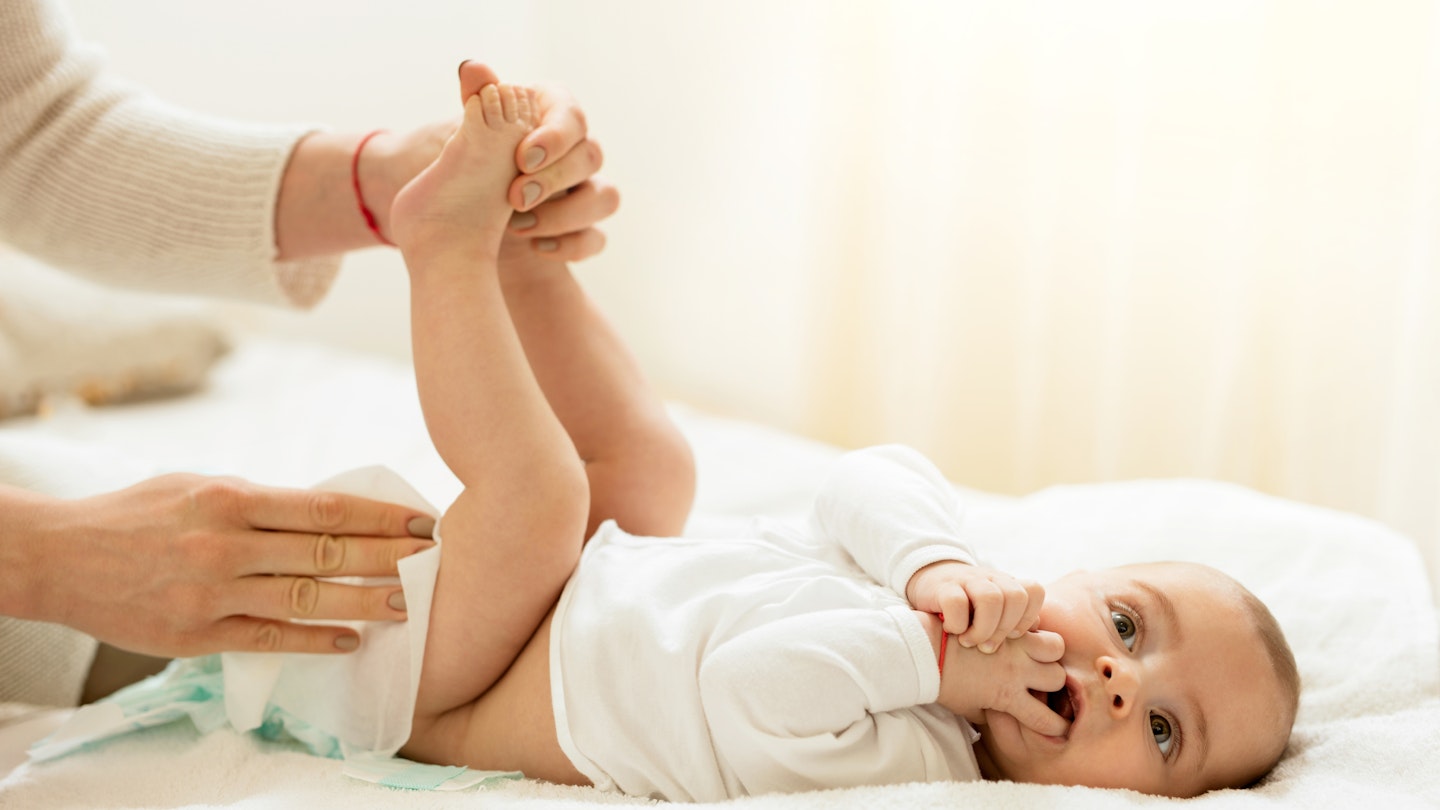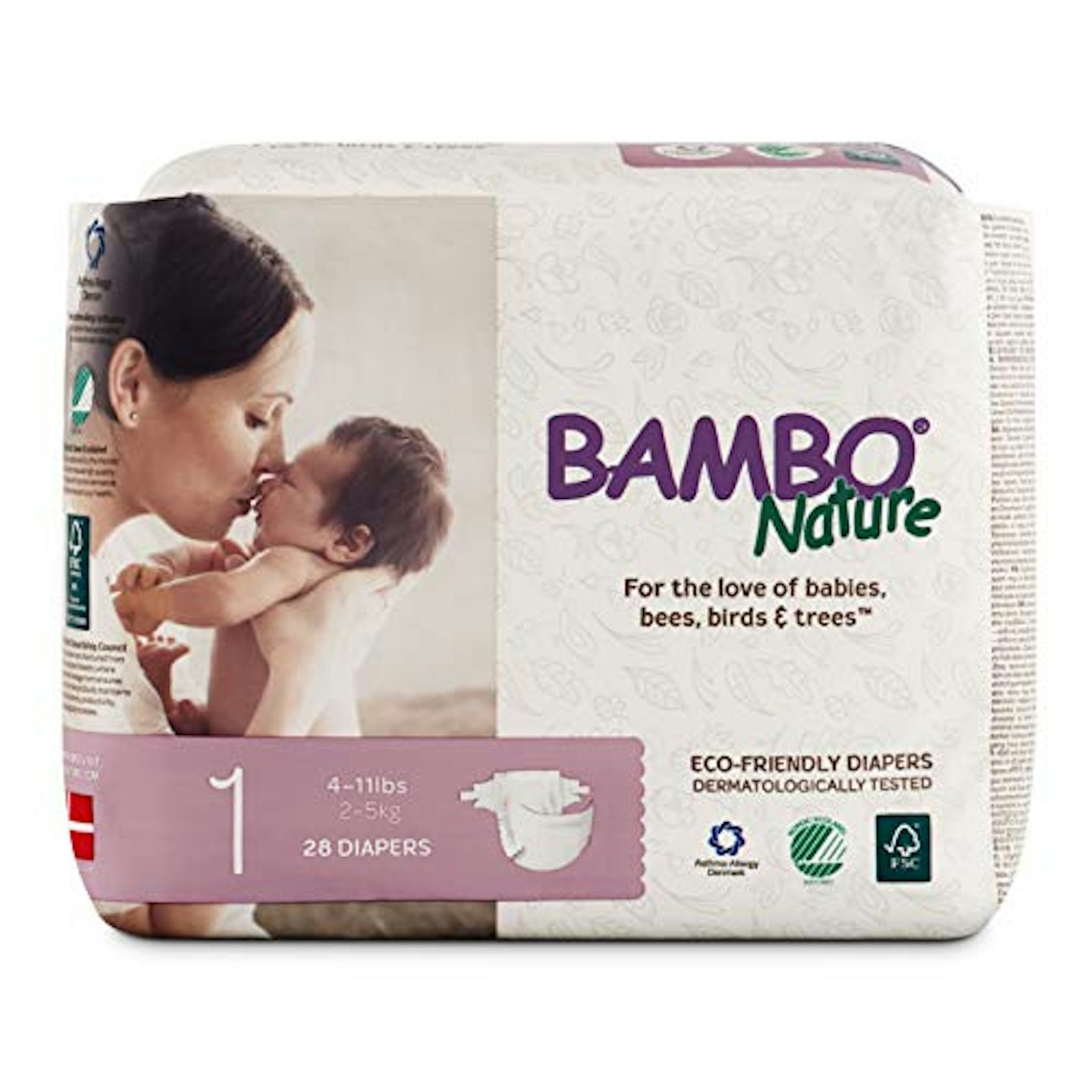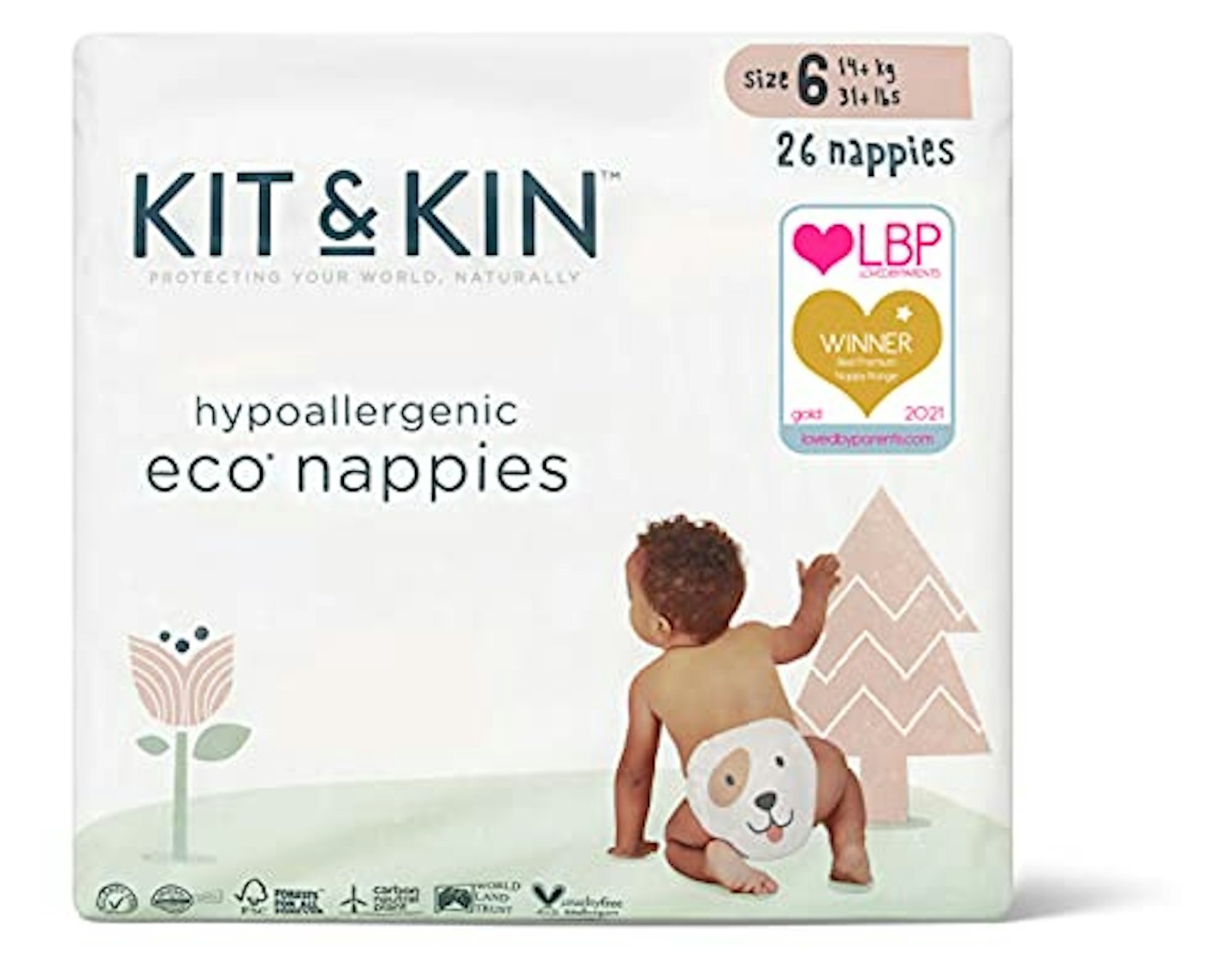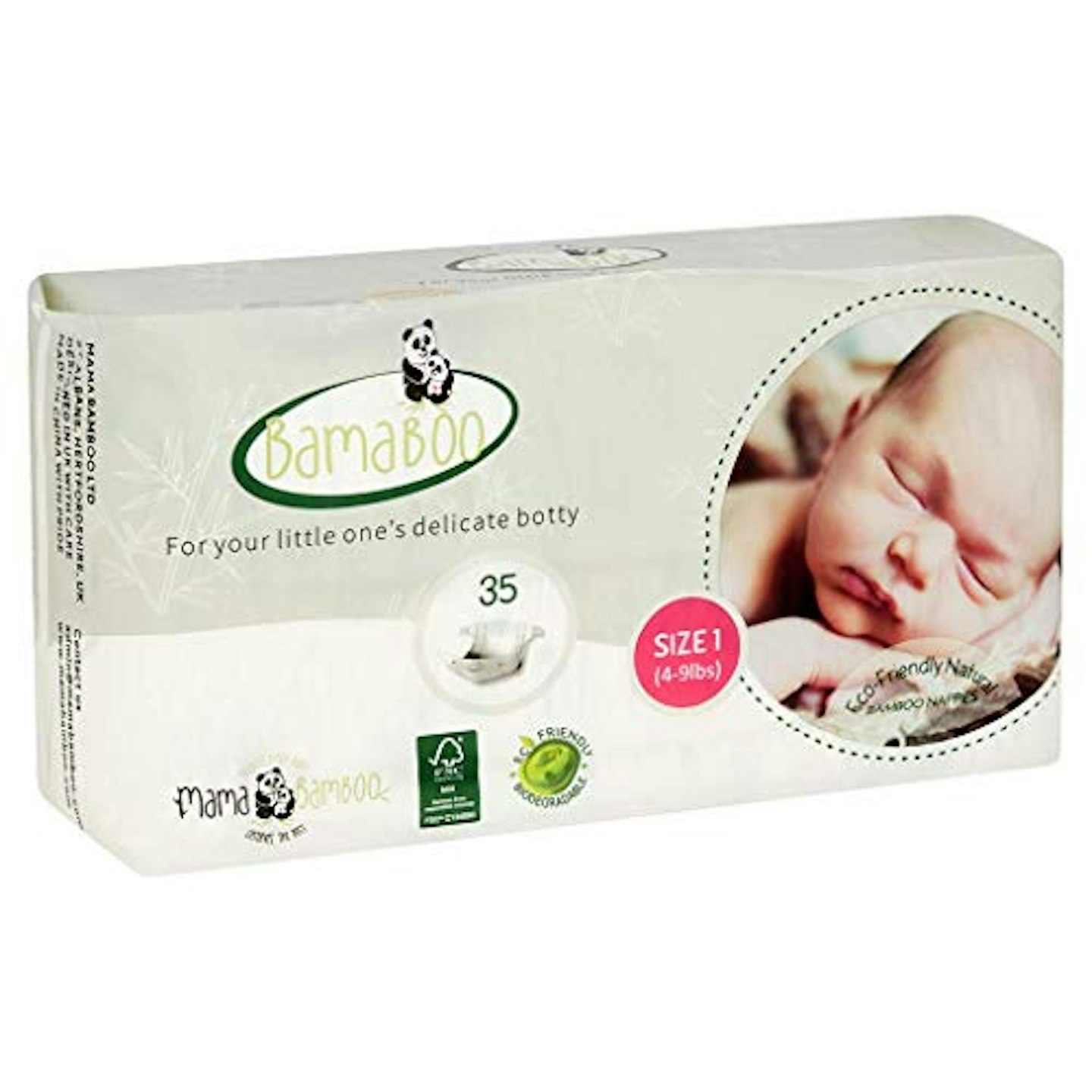The conversation around biodegradable nappies has spanned over two decades now, but it seems in recent years more parents are making the switch to biodegradable and reusable nappies.
In a bid to be environmentally friendly parents, as well as switching what nappies they use, they're also using eco-friendly nappies, wipes, and even toys.
The Environment Agency, in 2008, estimated that over the first two and a half years of a baby's life, all of the disposable nappies that they wore would create 550kg (1,200lb) of carbon emissions. While reusable nappies would create 570kg of carbon emissions.
But what about biodegradables? The problem is, while there are nappies available labelled as environmentally friendly, are they really biodegradable?
What does biodegradable mean?
According to the Cambridge Dictionary, biodegradable means products or substance which are ‘able to decay naturally and in a way that is not harmful.’
What are biodegradable nappies made of?
Exactly what biodegradable nappies are made of actually differs from brand-to-brand. Typically, most contain more eco-friendly materials with fewer or no chemicals than you would find in a traditional disposable nappy.
When deciding which brand to go with, check the product information as no two brands of eco-nappies are the same.
Here are a few examples:
Mama Bamboo- Each nappy is made from mostly naturally derived fabrics: 100 per cent organic non-woven bamboo fibre, 100 per cent compostable blown film liners, and 100 per cent chlorine-free sustainably sourced compostable fluff pulp core.
Mum & You - made using chlorine-free wood pulp from certified sustainable forestry and free from dyes, lotions, and latex.
Eco by Naty - The core of the nappy is made from 100 per cent FSC certified wood pulp while the other layers are made of natural biodegradable materials.
Kit & Kin – The core contains chlorine-free fluff pulp harvested from sustainably managed forests and the front panels, tapes, anti-leak barriers, and packaging are all made from an oxo-biodegradable material.
What eco nappies are available?
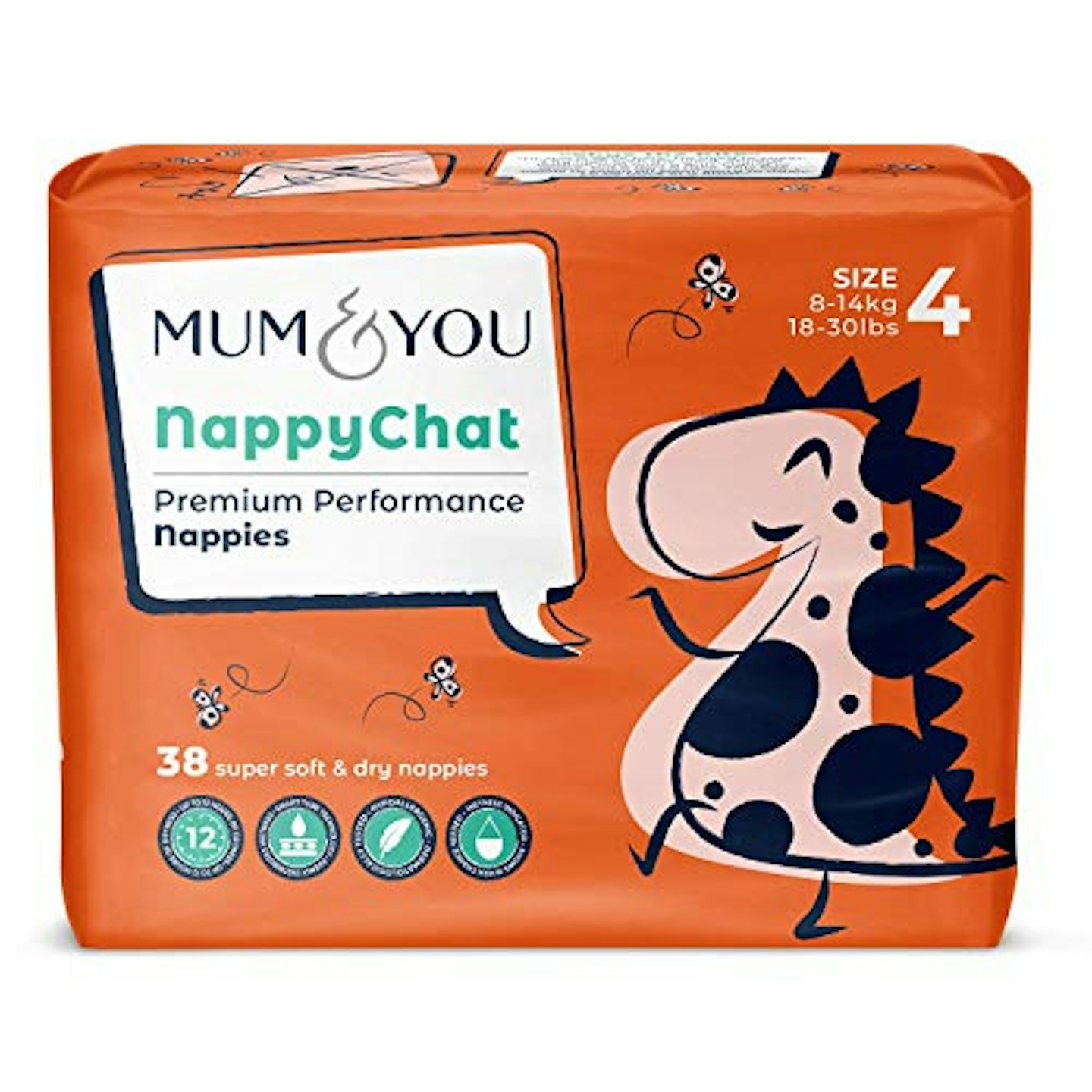
These nappies were shortlisted for Best Performance Disposable Nappy or Nappy Range in the 2019 Motheru0026Baby Awards.
With a biodegradable core and no added chemicals, Mum u0026 You nappies are super soft and comfortable for your little one to wear. The absorbency layer is made using recycled wood pulp from certified sustainable forestry and they give up to 12 hours protection against leaks as well as being hypoallergenic u0026 dermatologically tested.
Mum Charlotte said: "I would recommend the nappies to any mum. They are comfortable for my baby, even when he is on the move as he is very active the nappies did stay on. The nappies are lightweight and good quality. I would recommend them as they are good for the environment which is rare for disposable nappies. The nappies are easy to use and good for a quick nappy change. They are very light even when dirty. I loved the bold designs and lovely prints. The price is affordable and you get a very large pack of nappies which lasts a long time."
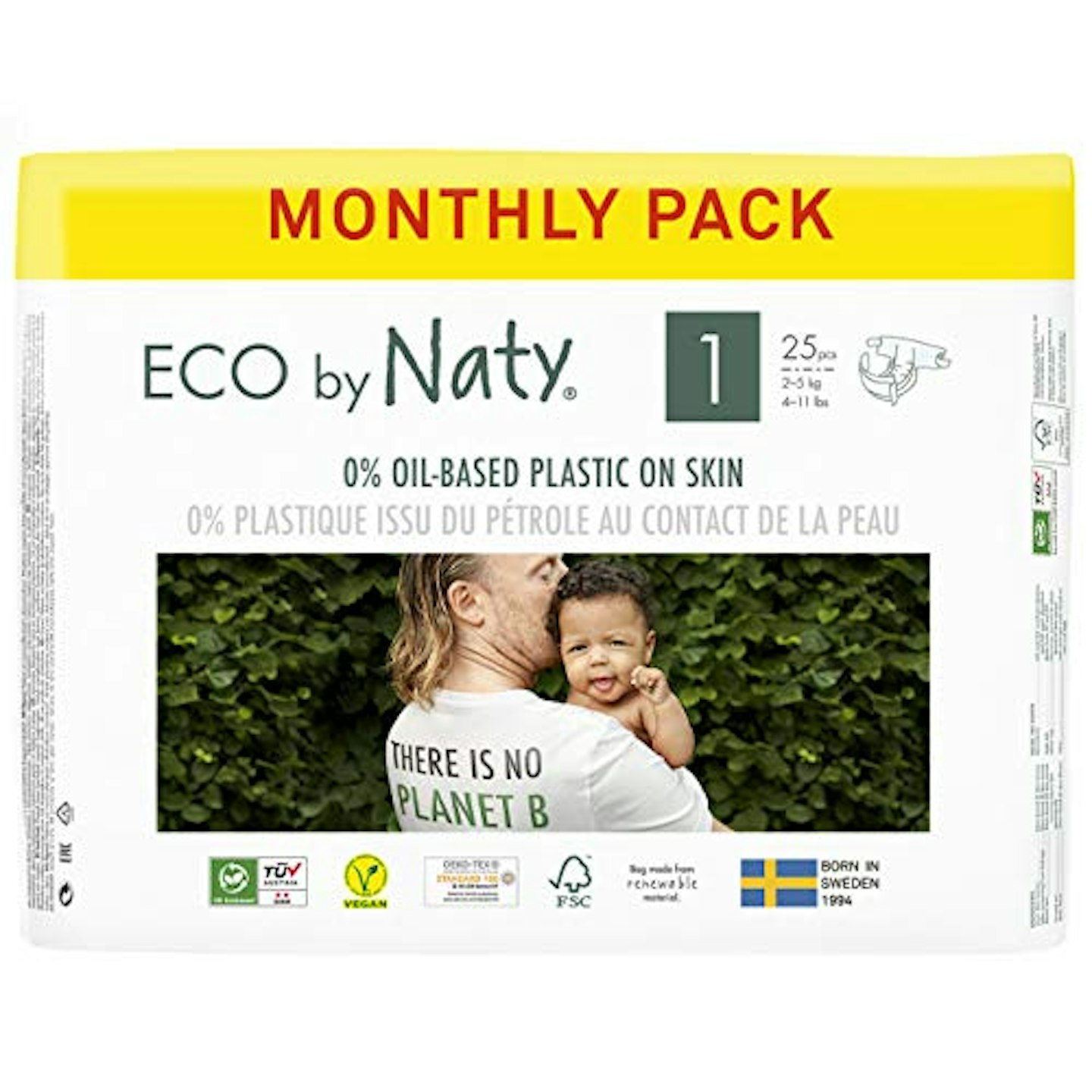
These nappies were also shortlisted for Best Performance Disposable Nappy in the 2019 Motheru0026Baby Awards.
Naty nappies are made from mostly plant-based materials and are the only nappy on the market to receive 'OK biobased' certification – confirmation that they contain primarily bio-based ingredients. The core of the nappy is made from 100 per cent FSC certified wood pulp while the other layers are made of natural biodegradable materials making the nappy breathable and comfortable against your baby's delicate skin. .
Mum Sarah says: "What I love about these nappies is that they are eco-friendly. With the number of nappies we go through every week, it is comforting to know that these nappies are environmentally friendly. It has certainly given me food for thought and I will look out for these nappies in the future. It is important for parents to protect our environment for our children’s futures. They are also soft, comfortable and fit well."
These nappies have also been shortlisted in the 2019 and 2021 Motheru0026Baby Awards.
Co-founded by Spice Girl Emma Bunton, Kit u0026 Kin have proved hugely popular amongst mums. Their nappies are made using eco and plant-based materials with a soft waistband and stretchy elastic panels which naturally adjust to your baby's body shape for maximum freedom of movement. For every pack sold, Kit u0026 Kin help fund the purchase and protection of threatened tropical rainforest through the World Land Trust's Buy an Acre programme.
Mum Georgia says: "They are very compact so I could fit a few more than other brands in my changing bag. They went a good number of hours through the night without feeling too full and didn’t cause any leaks. They had a good structure to them, unlike some nappies on the market, which meant it was much easier to put on a wriggly baby, making my life a lot easier! I found that the nappies fold really well once used too, meaning less mess which was great."
These nappies were our Gold Award winners for Best Performance Disposable Nappy at the 2020 Motheru0026Baby Awards.
Mama Bamboo's Bamaboo award-winning, eco-friendly nappies are made from natural bamboo so it's soft on their skin and they even reduce the chance of getting nappy rash or irritation. Bamaboo promises they will keep your little one's skin dry and comfortable and were highly praised by our mum testers.
Mum Clare says: "The nappy is a really lovely product. It has a quality feel about it, with a sophisticated design, and beautifully soft material. We had no leaks and no nappy rash. I liked using them for my baby because the nappy material feels soft and natural, rather than some of the plastic-y disposables on the market. I love the fact it is environmentally friendly, yet it doesn’t require the efforts of washing needed to use cloth nappies."
Are biodegradable nappies completely biodegradable?
Unfortunately, there are currently no nappies that are 100 per cent biodegradable. While the nappies included in this guide are made from environmentally friendly materials, they are not completely biodegradable.
Does ‘eco-friendly’ mean biodegradable?
Nappies dubbed eco-friendly simply refer to nappies that are environmentally friendly in some way, whether that’s by using fewer chemicals, plastic-free packaging, or consisting of some biodegradable materials. This is why it is important to do your homework rather than going by product packaging.
What happens to biodegradable nappies in a landfill?
Very little is the answer sadly.
Nappies with biodegradable elements need to be composted in a particular way and this isn’t going to happen at a landfill. Landfill sites are specifically designed to keep any decomposition as low as possible, because of the gases and liquids which are released when decomposition occurs.
"As landfills are ‘capped’, the environment within them is of an anaerobic nature (i.e. there is no oxygen)," says Adam Herriot, Resource Management Specialist from WRAP. "This means that biodegradable materials either do not breakdown or they take an extended period to do so. It is estimated that nappies would take approximately 300-500 years to breakdown in a landfill."
What should I do with soiled nappies that contain biodegradable materials?
Ironically, despite having biodegradable elements, this just isn't enough to be able to dispose of eco-friendly nappies in a way that is beneficial to the environment, so there'll be no popping them in your compost bin.
"We always recommend following the advice of your local authority to ensure that these go through to the most appropriate disposal route available to you," says Adam. "This unfortunately often means placing into the residual waste bin."
Should I use cloth nappies?
Another eco-friendly option you’ve probably heard about are cloth nappies. WRAP says that a baby could have used 4,000 to 6,000 disposable nappies by the time they are potty trained compared to 20 to 30 reusable nappies. "Cloth nappies, or ‘real nappies’, can be used over and over again, saving tonnes of waste from going to landfill," says Adam. "Realnappiesforlondon.org.uk is a great source of information on additional benefits, including cost savings."
